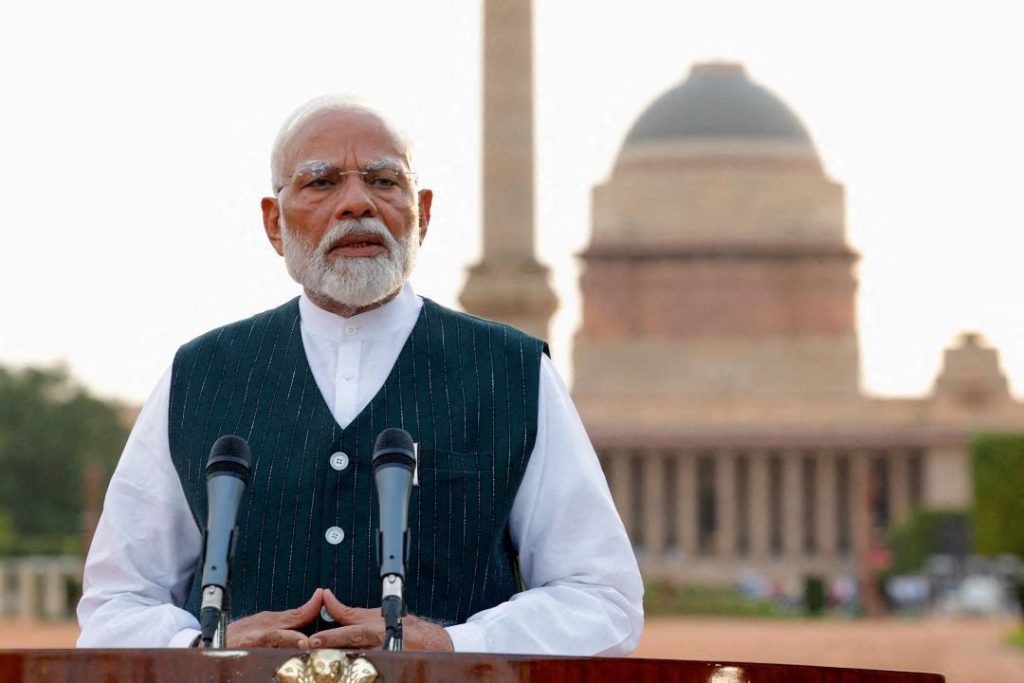
PM Modi Rejected Proposal to Exempt Himself from PM-CM Removal Bills: Rijiju
In a recent development, Union Minister Kiren Rijiju has revealed that Prime Minister Narendra Modi rejected a proposal to exempt himself from the provisions of the new Bills that propose the removal of PMs, CMs, and Ministers arrested or detained for at least 30 days. This move has sparked a flurry of reactions, with many interpreting it as a demonstration of PM Modi’s commitment to the rule of law and equal treatment for all citizens, including those in high offices.
As per Rijiju’s statement, the proposal to exempt the Prime Minister from the Bills was made by some individuals, but PM Modi refused to give in. According to Rijiju, the Prime Minister emphasized that he is also a citizen and should not have special protection. This decision is seen as a significant departure from the past, where Prime Ministers and other high-ranking officials have often enjoyed immunity from prosecution and removal.
The news of PM Modi’s rejection of the proposal has sent shockwaves across the political spectrum, with many praising the Prime Minister’s commitment to transparency and accountability. The move is seen as a significant step towards ensuring that those in power are held accountable for their actions, just like any other citizen.
The Bills in question, which propose the removal of PMs, CMs, and Ministers arrested or detained for at least 30 days, are part of a larger effort to strengthen the country’s democratic institutions and ensure that those in power are held accountable for their actions. The move is seen as a significant step towards promoting transparency and accountability in governance.
Rijiju’s statement has sparked a flurry of reactions from various quarters, with many praising PM Modi’s decision. “PM Modi’s decision to reject the proposal to exempt himself from the Bills is a significant step towards promoting transparency and accountability in governance,” said a senior government official on condition of anonymity. “It shows that the Prime Minister is committed to the rule of law and is willing to hold himself accountable for his actions, just like any other citizen.”
Not everyone is pleased with PM Modi’s decision, however. Some have criticized the move, arguing that it will lead to instability and uncertainty in governance. “PM Modi’s decision to reject the proposal to exempt himself from the Bills is a reckless move that will lead to instability and uncertainty in governance,” said a senior opposition leader on condition of anonymity. “It is a sign of the Prime Minister’s arrogance and lack of understanding of the complexities of governance.”
Despite the criticism, PM Modi’s decision is seen as a significant step towards promoting transparency and accountability in governance. In a country where corruption and cronyism are rampant, PM Modi’s decision to reject the proposal to exempt himself from the Bills sends a strong message that those in power are not above the law.
The move is also seen as a significant step towards promoting the rule of law in the country. In India, where the rule of law is often seen as weak and ineffective, PM Modi’s decision to reject the proposal to exempt himself from the Bills is a significant step towards strengthening the country’s democratic institutions.
The news of PM Modi’s rejection of the proposal has also sparked a flurry of reactions from social media, with many praising the Prime Minister’s decision. “PM Modi’s decision to reject the proposal to exempt himself from the Bills is a significant step towards promoting transparency and accountability in governance,” tweeted a prominent social media influencer. “It shows that the Prime Minister is committed to the rule of law and is willing to hold himself accountable for his actions, just like any other citizen.”
In conclusion, PM Modi’s rejection of the proposal to exempt himself from the Bills that propose the removal of PMs, CMs, and Ministers arrested or detained for at least 30 days is a significant step towards promoting transparency and accountability in governance. The move is seen as a demonstration of the Prime Minister’s commitment to the rule of law and equal treatment for all citizens, including those in high offices. As the country moves forward, PM Modi’s decision will be seen as a significant step towards strengthening the country’s democratic institutions and promoting transparency and accountability in governance.
News Source: https://x.com/ANI/status/1959229303952122207






